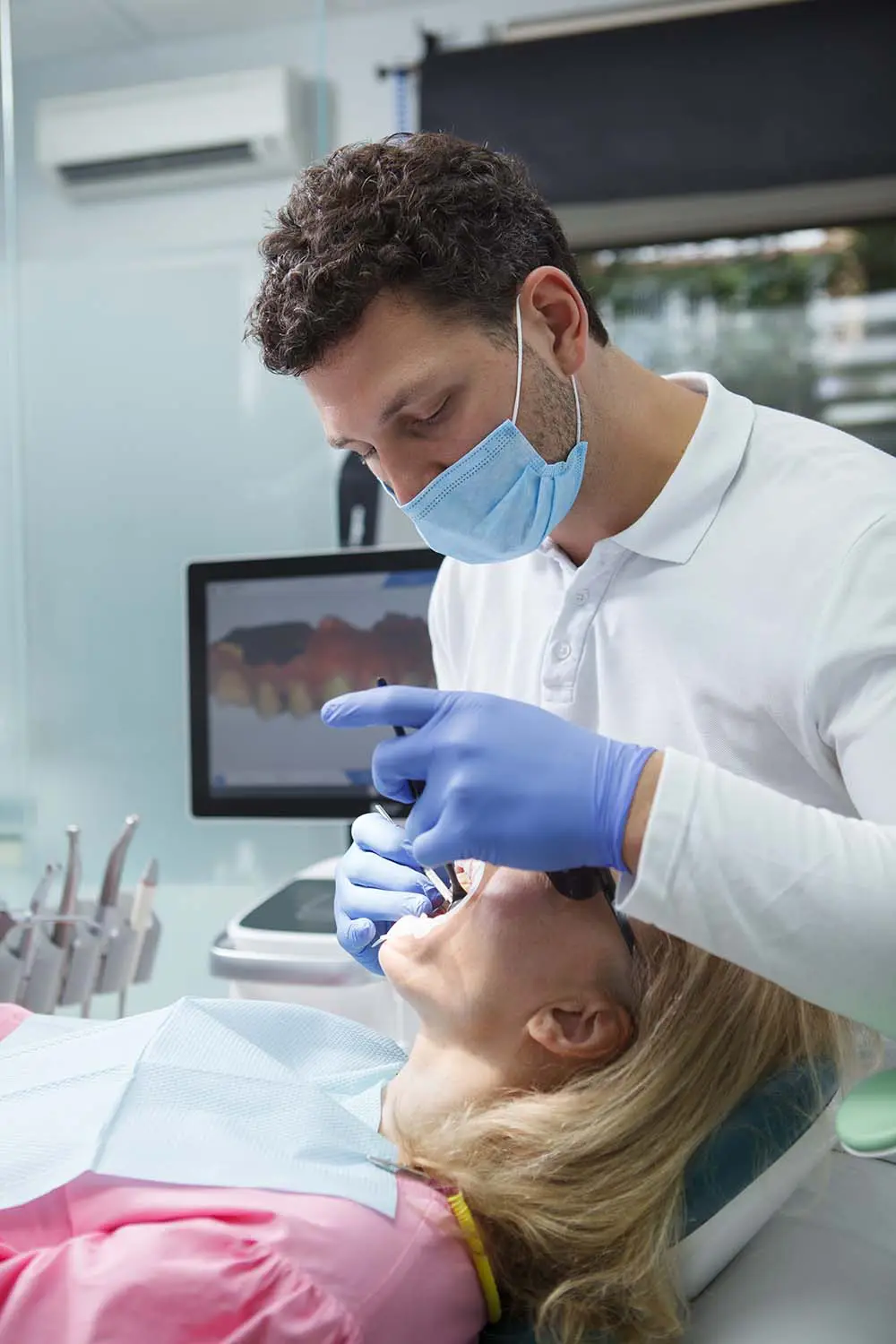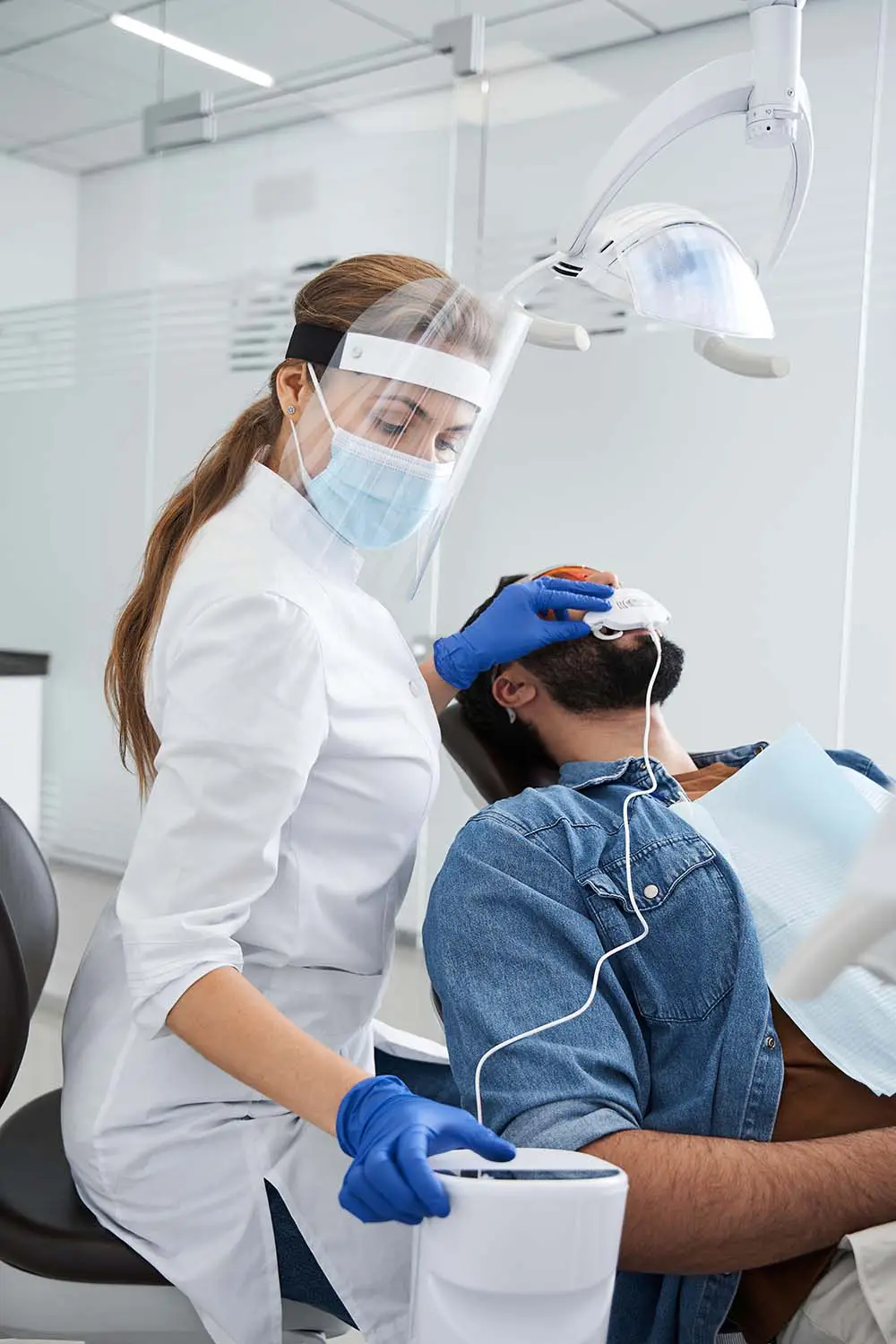When you’re considering dentures as a way to restore your smile and your self-confidence, you’re also entering a world you probably know little about — the world of dental prosthetics. Today’s dentures are not like your grandparents’ false teeth. Thanks to modern materials and procedures, today’s dentures look and function more like natural teeth than the dentures of 50 years ago.
Here at Bahia Dental Group in Pittsburg, California, Dr. Marzieh Oghabian offers a variety of denture options to fit your mouth and your lifestyle as perfectly as possible. Take a few minutes to learn about what you can expect with your new teeth and adjusting to life with dentures.
Dentures take some time to get used to
Your new dentures are going to make it so much easier for you to speak clearly, eat, and smile with confidence, but they do take some time for your mouth to get used to them. Like braces or any other oral appliance, at first, they’re foreign to your tongue and gums. They may feel bulky and awkward, but, over time, your tongue gets used to how they feel, and your gums adjust to the snug fit of your new teeth.
Most people need a few weeks until they truly feel comfortable eating all kinds of foods and speaking clearly with dentures in their mouth. Until you’re used to how it feels to chew and swallow with dentures, choose soft foods. Practice eating small bites and chew with both sides of your new teeth.
It’s also a good idea to read aloud so you get used to talking with dentures and how they feel in your mouth when you form words. Reading aloud to yourself at home can help you feel more confident when you talk to other people in social settings. You can also sing along to your favorite music while you’re driving to help you get used to forming a variety of words with your new teeth in place.
Be patient with yourself as you learn to talk and eat without difficulty. For many adults, it takes about 30 days to completely adjust to wearing dentures.
Common oral conditions resolve themselves as your mouth adapts to dentures
It’s typical to experience some minor problems during the first few days with your new dentures. For example, many people notice an increase in saliva production, soreness along their gums, and tired jaw muscles. Also, it’s common to feel like your dentures are too loose or too big for your mouth.
All of these issues usually resolve themselves, but if you’re having a lot of discomfort, or if the feeling lasts longer than Dr. Oghabian says it should, come back to the office for an adjustment to increase your comfort.
Dental adhesives may help your dentures stay in place at first, but you shouldn’t depend on them long term. If you need a lot of adhesive to keep your dentures securely in place, then you probably need an adjustment to fix the problem.
Remove dentures when you sleep
It’s not a good idea to wear your dentures 24 hours a day without removing them to clean them and to keep your gums and tongue clean. Removing your dentures while you sleep also gives your jaw and soft tissues a rest overnight. While you want your mouth to get used to wearing dentures, you also want to give your mouth a break from them, especially in those first few weeks.
Give yourself 30 days to adjust
Keep your expectations realistic and plan to go through the 30-day adjustment period we mentioned above with your new dentures. That means eating soft foods that are gentle on your gums for the first week or so. And know that it’s normal to experience soreness and some irritation from your new dentures so you don’t get frustrated.
Also, be sure to come to your scheduled follow-up appointments so Dr. Oghabian can check your progress and attend to any areas of concern.
In the long run, dentures can restore your self-confidence and even help improve your overall health and well-being. Give yourself time to adjust to life with dentures and they’ll serve you for many years.






